- Home
- JoAnn Ross
Castaway Cove Page 16
Castaway Cove Read online
Page 16
“So,” he said, taking a drink from a frosted mug of beer after Maddy returned to the kitchen with their order, “you grew up on a farm?”
“I lived on one. For a few months.”
“Your family move around a lot?”
“No.” Annie ran her fingernail around the rim of her glass of basil lemonade—she’d declined to order wine since she was going back to work. “I was left in a box at a hospital when I was a few weeks old, which landed me in the state foster care system, which had me moving around a lot.”
Including the farm she’d mentioned, where she’d discovered the first day that she and the other three foster kids living there had been taken in to work as unpaid hired hands.
“That sucks.”
“Not always.” She thought about the scrapbook habit that had provided comfort for so many years, eventually changing her life. “How about you? I know your father’s a doctor and your grandfather was a fisherman. What about your mother?”
He gave her a look that let her know that he knew she was changing the subject, but wasn’t going to call her on it. “She was a university librarian. Dad’s her second husband.”
“Oh, that explains the difference in last names. I thought perhaps you took Culhane as a professional name.”
“Culhane’s my birth dad’s name. He was an Air Force pilot who died in a training flight outside Tucson when I was a kid. When my mom married the guy who became my dad, he gave me the choice of taking his name or staying with my dad’s, which he thought would be a way to help me remember my roots and honor a hero.”
“That’s an incredibly generous gesture.”
“Dad’s an incredibly generous man.”
“So I’ve noticed. According to the rumor mill, he’s a very popular doctor as well.”
Mac laughed. “That’s true, though a lot of physicians would consider changing from being a world-famous pediatric cardiac surgeon to treating chicken pox and giving booster shots a demotion, he seems to be really enjoying his part-time work as a family physician. And I’ve got to say, we’ve probably got enough cakes, cookies, and casseroles in our freezer as gifts from women suffering an epidemic of mysterious symptoms to last until the end of the world. Or an earthquake or tsunami, whichever comes first.”
“It’s always handy to be prepared.” Although she wasn’t about to admit it, the blue and white tsunami evacuation road signs still made her a bit nervous. Especially since she lived right on the water, and not up on a cliff like Sax and Kara Douchett. “As for the women, they’re probably lonely, so I guess you can’t blame them for trying. “
From the way the women of Still Waters flirted with the handsome, sixtysomething silver-haired Boyd Buchanan when he came to visit his father, Annie suspected he could be one of the more eligible bachelors in town.
“It’s always worth a shot. And who knows?” Mac shrugged as he tore two pieces of bread off the loaf and handed her one. “But my money’s on him being a one-woman guy. He always said Mom was his soul mate.”
“That’s sweet.” She dipped the bread into the flavored olive oil pooled on a white rectangular plate.
“Yeah. Maybe he picked the idea up from Charlie. Or maybe it’s genetic.
“So,” he said, returning the focus of the conversation to her, which she’d hoped to avoid, “have you always lived in Oregon? And why did you move to Shelter Bay?”
“I grew up in Oregon.” Those days were not her favorite subject. Annie took a sip of lemonade. “After graduating from the University of Portland, I moved to D.C.” She smiled a bit at the naiveté of that young girl she’d once been. “I actually thought I was going to be the new Woodward. Or Bernstein.”
“I imagine that’s probably the goal of most journalism majors,” Mac said. “And you should do that more often.”
“Do what?”
“Smile.” His eyes slid down to her lips, which she hadn’t even realized had curved, and then back up to her eyes. “It’s pretty damn amazing.”
“It’s just a smile.”
“Yeah. That’s what da Vinci’s model probably said when he was painting the Mona Lisa.”
“Are all you radio guys born to be such smooth talkers?” she countered. “Or is it something you learn in deejay school?”
“Although it wasn’t a line and I meant what I said, as for the radio business, you can have all the training in the world, but mostly you learn stuff by doing. Which is probably pretty much the same as journalism. Or,” he said as he saw a server headed their way with lunch, “cooking.”
The conversation broke off for a moment as plates were delivered. Annie thought her salad of brilliantly colored field greens dressed with a tequila lime vinaigrette could have appeared on the cover of a cookbook. Or framed on the wall in some chichi art gallery or museum.
And Mac’s burger, which included caramelized onions and blue cheese from a nearby farm, served on a toasted roll topped with black and white sesame seeds, was definitely manly food. As were the fries and what had been described on the menu as a house-made dill pickle.
“Did you?” he asked after he’d taken a bite of the burger and declared that it lived up to its billing.
“Did I what?” The tequila-grilled prawns were heaven, the greens from Lavender Hill Farm gardens as fresh and crisp as they looked.
“Did you take Capitol Hill by storm and uncover political scandals? You’ve got to remember, I was out of the country for much of the past decade, so I could’ve missed something.”
“No.” She put down her fork and took a longer sip of lemonade, wishing it were something stronger. She kept hoping to put her past behind her. “Breaking into the political beat right out of school isn’t that easy. I’d interned at the Post the summer of my junior year, but so do a lot of other, way more connected students. And I didn’t want to try to break out as a blogger.”
“So?” He crunched one of the fries that had come with the burger. “What did you do?”
“I went to work on K Street for a lobbyist who represented educational interests.”
“A noble pursuit.”
“At times.” She’d learned, her first weeks on the job, that watching government in action really lived up to that old adage comparing it to sausage making. Sometimes it was better not to know what went into the final product. “Then the short story is that I married the boss. Divorced the boss. And moved back west.”
“Why didn’t the marriage work out?”
“I didn’t realize I was having lunch with Dr. Phil.”
“We’ve already shared more than most people do before a first date.” He reminded her of those late-night conversations. “We both admitted to regrets. I’ll be the first to admit that I was a lousy husband. I was running around the world, all wrapped up in my own self-importance—”
“I imagine what you were doing for the troops was a far more important thing than writing lobbyist press releases,” Annie said.
“Nothing wrong with press releases,” he replied. “And yeah, I like to think I made a difference. But somewhere along the way, it went from being about the troops to being about me. As Kayla told me more than once.”
“Kayla being your ex-wife.”
“That would be her. We’d been the golden couple. She was a former Miss San Diego who used her title to get a gig doing entertainment news on a local station. I was the morning drive-time guy on the top-ranked station in San Diego. We were living the American dream, and everything should have been perfect, but then I started thinking that there had to be more to life than making money and having fun.”
So Sedona either hadn’t known, or had neglected to mention, that he’d been married to a beauty queen. If Annie was so determined not to get involved, why did that little news flash bother her? “Which is when you joined the military?”
“Yeah. I went out for a beer with a recrui
ter after a gig for Wounded Warriors. He could probably make your Washington lobbyists look like amateurs. He was good at his job.”
“And you were good at yours.”
“And you know this how?”
“Because you’re good now. You connect with your callers in some personal way.” Hadn’t he gotten her to call in? “It’s as if you’re all alone, just one on one. That’s an admirable talent.”
“Thanks. Kayla was less impressed. Then again, she was the one left back home trying to keep it all together.”
“I’ve always heard that the most difficult job in the military is being a military spouse.”
“That’s probably true. It didn’t help that she’d grown up a Navy brat and had always sworn not to marry a military man.”
“So, essentially, you altered the contract.”
“Pretty much blew it up.”
As he polished off the beer, Annie’s heart went out to him, as it had that night when he’d told her, when they’d been talking alone in the dark, about regrets.
“When my marriage broke up, I blamed myself.” It was the first time she’d said those words out loud to anyone. It worried her that the person she’d chosen to tell was the one person she’d vowed not to get involved with.
But maybe that was better? Couldn’t it make him more impersonal if she could think of him more along the lines of a fellow survivor than a potential lover?
“I honestly can’t imagine anything you could do that would give a man any excuse to leave.”
“No one’s perfect. We all have flaws.”
Had it been her unrelenting hunger to have a child at all costs that had driven her husband into the arms and bed of another woman? Or would he have left anyway? She had, after all, been his third wife.
Something she hadn’t known when she’d married him, since he’d neglected to mention wife number one, whom he’d married right out of college and who’d been there with him in those early days when he first started setting up his business. She’d even, Annie had found out during the divorce proceedings, been the first person to hold the job Annie had taken over, writing the press releases and working on crafting legislative bills.
“But I’ve come to realize that life’s often messy,” Annie said. “And random.”
“If that’s true, why did you blame yourself?”
“I wanted children. My husband had already raised a family with his previous wife. He had children older than I was when we married. If I hadn’t been secretly afraid that he would say he didn’t want another family, I would have, should have, brought it up before we got married. By the time I finally realized his mind was made up, he’d already found someone else.”
“His loss,” Mac said.
Damn. She was talking too much. Stalling for time, Annie took a bite of shrimp. “I’ve no idea why I’m telling you all this.”
“It’s called sharing. It’s what friends do.”
“Is that what we are? Friends?”
“I’m not saying I wouldn’t like to be more,” he said.
“Friends with benefits?” Didn’t it just figure?
“No, friends with chemistry, because although you’re unwilling to admit it for some reason, we seem to have a chemistry that rivals a supernova. Which is a really big responsibility.”
Being the terrible liar that she was, which had been one more reason she’d failed as a lobbyist’s wife, Annie wasn’t going to try to deny the chemistry. Even that first meeting at Still Waters, when she’d decided to dislike him, there’d been something. . . .
“Because of Emma,” she guessed.
Sedona had filled her in on what she knew about Mac Culhane, and apparently he hadn’t gone out with anyone since arriving in town. Annie suspected that was because he didn’t want his daughter to get emotionally involved with a woman only to have her disappear from their lives as well.
“No. Well, sure, Emma, too. But you can’t overlook that there could be repercussions for the entire world.”
She put down her fork and looked at him across the wooden tabletop. “The world?”
He had a way of turning even the most serious conversation to a lighter topic. Another thing that worked so well on the radio. And encouraged people to call in.
“Yeah. Didn’t you feel it? During that kiss? The ground rumbling beneath our feet?”
“No.”
He pointed his fork at her. “Liar,” he said without heat. “And my point is that if we can make the earth move, if I ever do get you naked and horizontal, we could risk blowing up the planet.”
“Does that line work for you very often?”
“I wouldn’t know. I’ve never tried it before, because I’ve never felt it before. And that,” he said, “isn’t radio guy hyperbole but the absolute truth. But if you want to keep things light, it’s your call.”
“Thank you.”
“You’re very welcome. Besides, you’ll be saving me money on power bills with all the cold showers I’ll be taking.”
The fact that he’d brought up the kiss had her sharing something she’d been thinking about ever since it had happened.
“Speaking as a friend, I have to admit I’m worried about spending the Fourth of July together.”
He put down the burger he’d been about to take another bite of. “You’re backing down?”
“Emma is obviously looking for another mother. I don’t want to get her hopes up, only to have them dashed.”
“We’ll be careful,” he promised. “Keep things casual around her. There’ll be no tonsil tangling in public with my daughter present. And my dad’ll be with us, so it’ll be more like a family outing than a date.”
“But we’re not a family.”
“Correction. A friendly gathering.”
“I suppose that sounds safe enough,” she replied.
“Emma’s my entire life right now,” he said, turning serious again. “I’ll admit to having some survivor guilt from Afghanistan. Nothing that serious, just your run-of-the-mill nightmares and stuff I’ve put in a box in my mind that I mostly keep locked.”
“That makes sense.” Especially since he’d admitted blaming himself.
There was a long moment of silence as he fiddled with his cutlery, as if trying to decide how much he was willing to share with her.
Then he said, “Oh, hell with it . . . What if all the women in town who are talking about us are right? What if we’re somehow letting Emma down, having her growing up just with two men in the house? What if little girls really do need a mom?”
“If that’s not a rhetorical question, you’re asking the wrong person,” Annie pointed out. “Because I wouldn’t know. Never having known my own mother. But I did have a handful of foster parents who were better than others, and I learned there are lots of ways women can influence a child’s life without being her parent. I think that saying about it taking a village is true. And you’ve certainly brought her to the right place.”
“Yeah.” His smile wasn’t as sexy as it had been. More reflective and a little sad, she thought. “This town is pretty much Mayberry on the bay. Which is why when Dad first suggested my bringing Emma back here to live, I jumped at the chance.”
He dragged a hand down his face.
“Hell, I’m sorry. And there I go again, slipping into a damn it’s-all-about-me mode. You’re right. You didn’t grow up with a mother or father, and look how great you turned out.”
He blew out a breath. “So next time I fall into old selfish habits, you have permission to just smack me.”
Despite the seriousness of the topic, Annie found herself laughing at that idea. “I’ve never hit anyone in my life; there’s not much likelihood of that happening. Besides,” she admitted, “given the choice, I’d much rather kiss you.”
25
Sedona had been thinking m
ore and more about her spreadsheet of qualifications that any future husband would have to possess. Perhaps Annie had a point. Perhaps it was a bit too stringent.
After all, who’d have thought Shelter Bay’s sheriff would now be living in matrimonial bliss with the town’s former bad boy? Or that J. T. Douchett, the college history teacher son of a fisherman, would marry an Irish movie star and screenwriter? And those were just two of the couples who’d become her close friends that she wouldn’t have thought stood a chance in the beginning.
Which was why, when a customer, who’d moved to Shelter Bay to work on a new start-up tech company asked her out to lunch at Lavender Hill Farm’s restaurant, she impulsively accepted.
Minutes into the lunch, Sedona was beginning to miss Dracula. At least that date, while admittedly weird and a bit creepy, had been unique.
She felt certain that her entrée was wonderful and delicious. Maddy Chaffee was incapable of preparing anything less than superb, which is why Sedona—who’d always preferred the precision of baking, where exact measurements not only mattered but were vital to success—had taken a few classes and was now actually, if she did say so herself, a fairly good home cook.
But it seemed that every time she was about to take a bite, the man across the table, who’d seemed so friendly, though a bit earnest, when he’d come into the bakery for his daily cupcake, would ask her yet another question.
“What’s your favorite movie?” he was asking now.
“Easy. Truly, Madly, Deeply. The way Alan Rickman comes back from the dead to help ease the pain of his grieving widow is probably the most romantic thing ever written. Which is why I always cry when she finally has to send him and the other ghosts away.”
“So, you’d consider yourself a romantic.”
There he went, typing away into that damn BlackBerry he’d put on the table as soon as they’d arrived.
“Not really. I’d consider myself a logical, rational woman who can also appreciate a hot guy, great acting, and a well-written romantic plot.”
More thumb tapping.

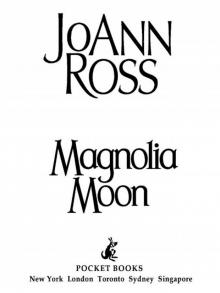 Magnolia Moon
Magnolia Moon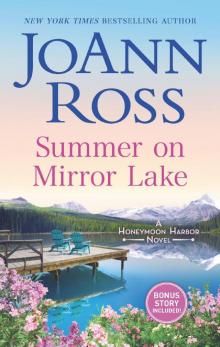 Summer on Mirror Lake
Summer on Mirror Lake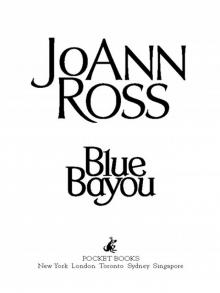 Blue Bayou
Blue Bayou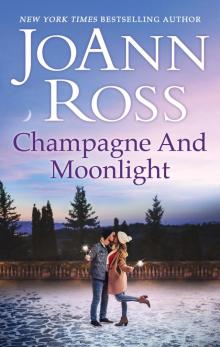 Champagne and Moonlight
Champagne and Moonlight No Regrets
No Regrets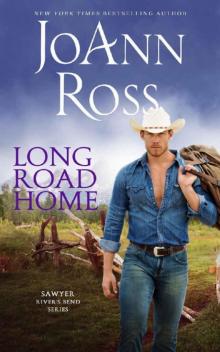 Long Road Home
Long Road Home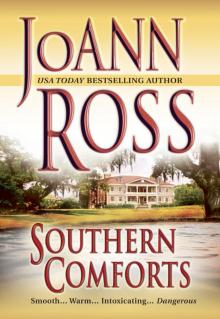 Southern Comforts
Southern Comforts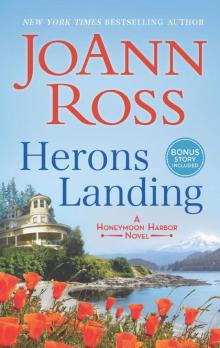 Herons Landing
Herons Landing Untamed
Untamed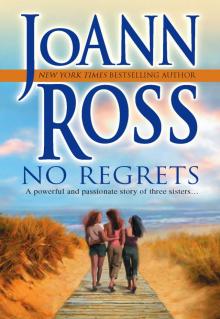 No Regrets (Mira Romance)
No Regrets (Mira Romance)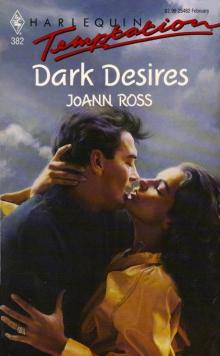 Dark Desires
Dark Desires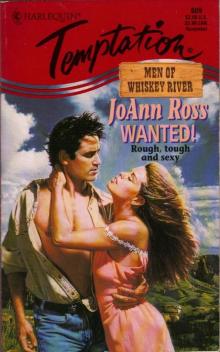 Wanted!
Wanted!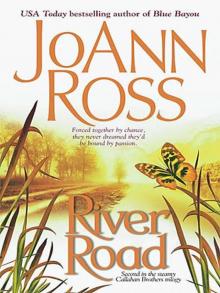 River Road
River Road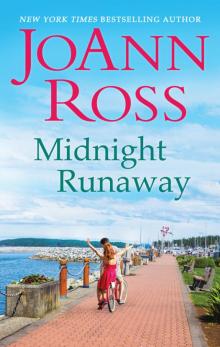 Midnight Runaway
Midnight Runaway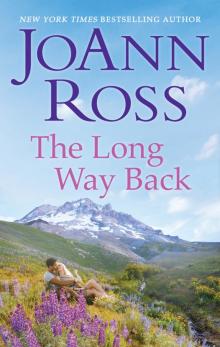 The Long Way Back
The Long Way Back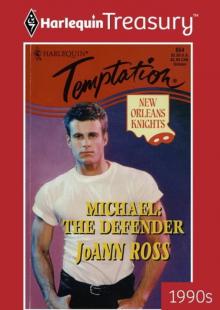 Michael: The Defender
Michael: The Defender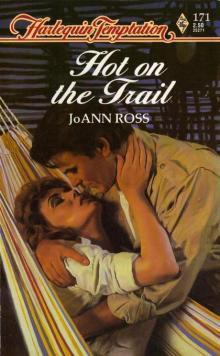 Hot on the Trail
Hot on the Trail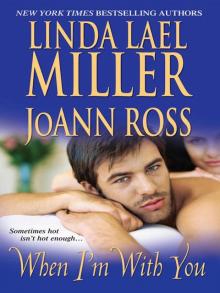 When I'm With You
When I'm With You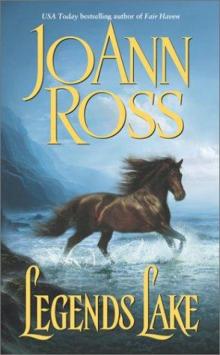 Legends Lake
Legends Lake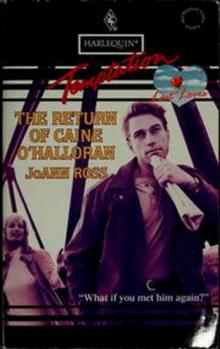 The Return of Caine O'Halloran
The Return of Caine O'Halloran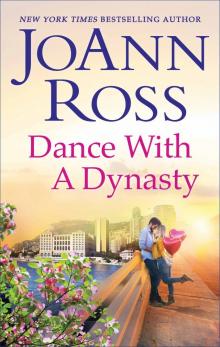 Dance with a Dynasty
Dance with a Dynasty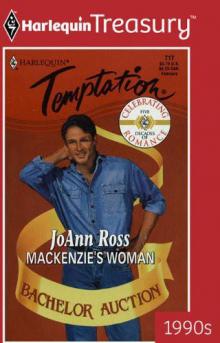 MacKenzie's Woman
MacKenzie's Woman Impulse
Impulse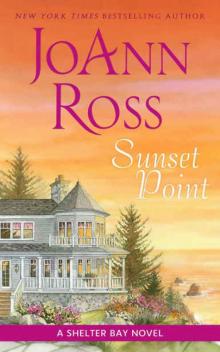 Sunset Point: A Shelter Bay Novel
Sunset Point: A Shelter Bay Novel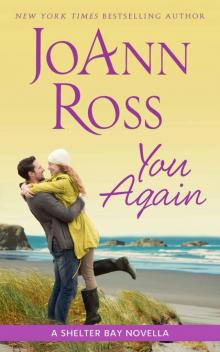 You Again: A Shelter Bay novella (Shelter Bay series Book 8)
You Again: A Shelter Bay novella (Shelter Bay series Book 8)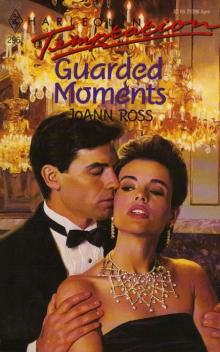 Guarded Moments
Guarded Moments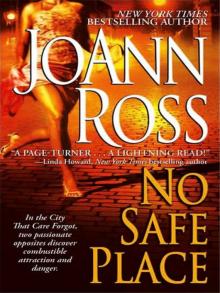 No Safe Place
No Safe Place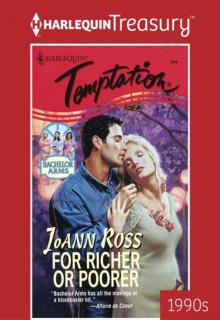 For Richer or Poorer
For Richer or Poorer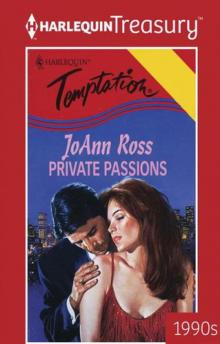 Private Passions
Private Passions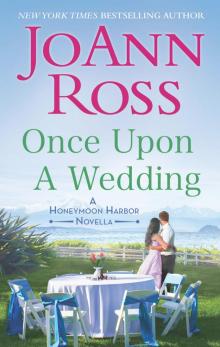 Once Upon a Wedding
Once Upon a Wedding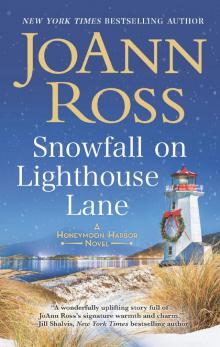 Snowfall on Lighthouse Lane
Snowfall on Lighthouse Lane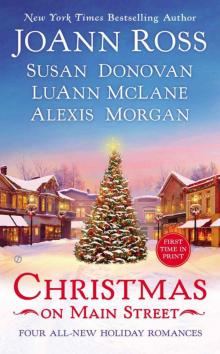 Christmas on Main Street
Christmas on Main Street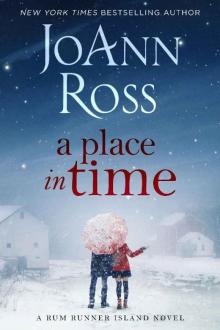 A Place in Time (Rum Runner Island Book 1)
A Place in Time (Rum Runner Island Book 1)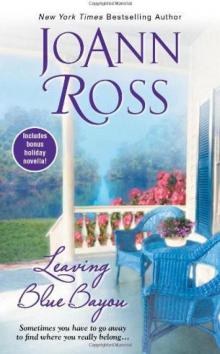 Leaving Blue Bayou
Leaving Blue Bayou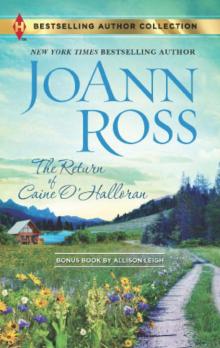 The Return of Caine O'Halloran: Hard Choices
The Return of Caine O'Halloran: Hard Choices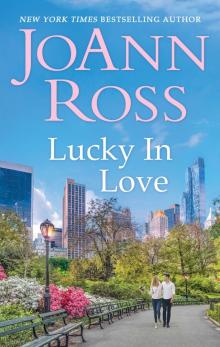 Lucky in Love
Lucky in Love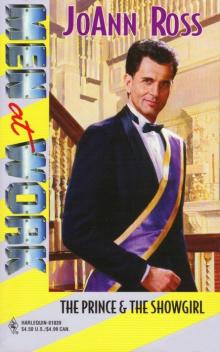 The Prince & The Showgirl
The Prince & The Showgirl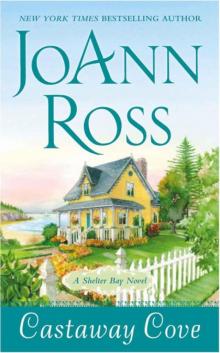 Castaway Cove
Castaway Cove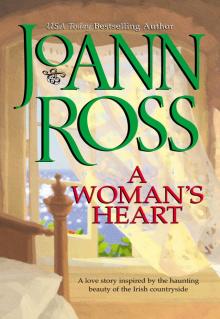 A Woman's Heart
A Woman's Heart One Summer
One Summer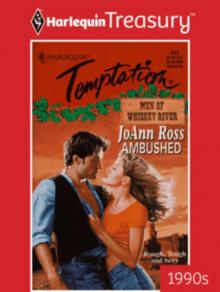 Ambushed
Ambushed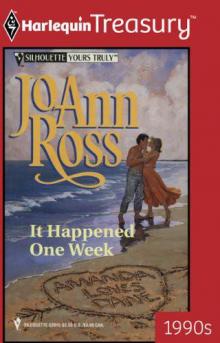 It Happened One Week
It Happened One Week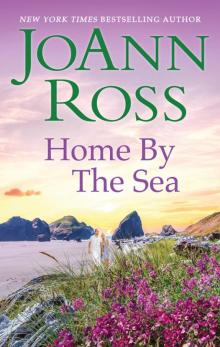 Home by the Sea
Home by the Sea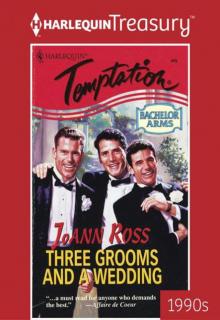 Three Grooms and a Wedding
Three Grooms and a Wedding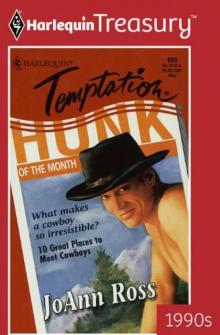 Hunk of the Month
Hunk of the Month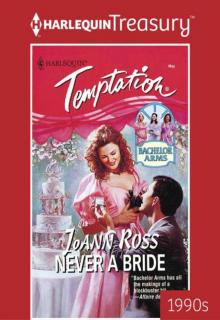 Never a Bride
Never a Bride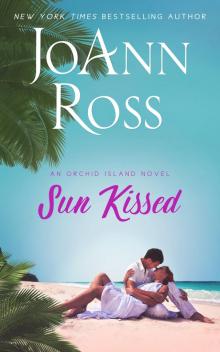 Sun Kissed
Sun Kissed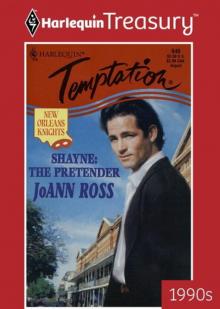 Shayne: The Pretender
Shayne: The Pretender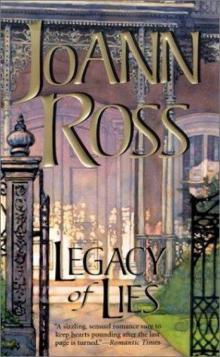 Legacy of Lies
Legacy of Lies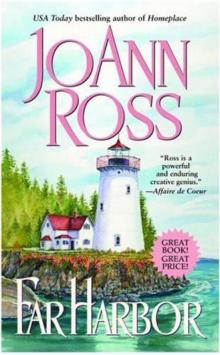 Far Harbor
Far Harbor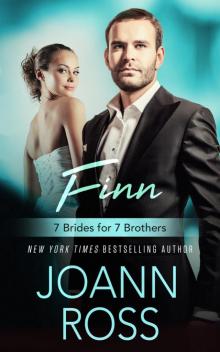 Finn
Finn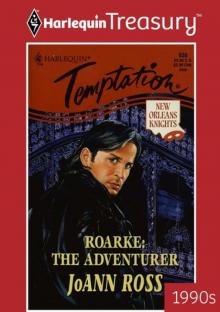 Roarke: The Adventurer
Roarke: The Adventurer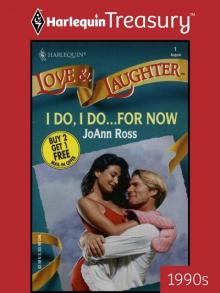 I Do, I Do...For Now (Harlequin Love and Laugher)
I Do, I Do...For Now (Harlequin Love and Laugher) Briarwood Cottage
Briarwood Cottage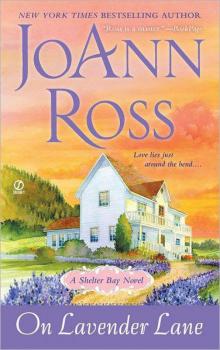 On Lavender Lane
On Lavender Lane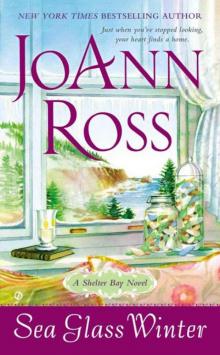 Sea Glass Winter
Sea Glass Winter River's Bend
River's Bend Christmas in Shelter Bay
Christmas in Shelter Bay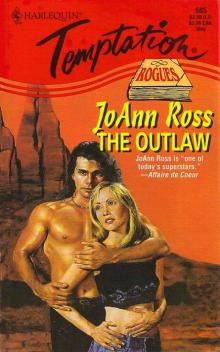 The Outlaw
The Outlaw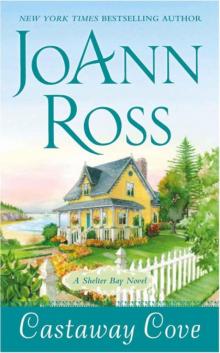 Castaway Cove (2013)
Castaway Cove (2013)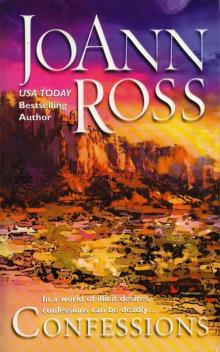 Confessions
Confessions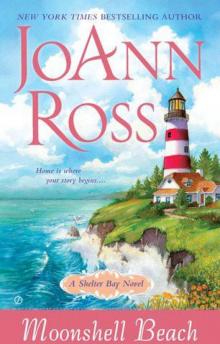 Moonshell Beach: A Shelter Bay Novel
Moonshell Beach: A Shelter Bay Novel